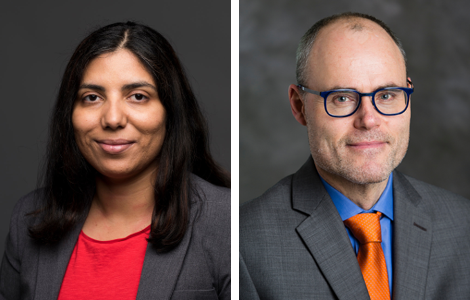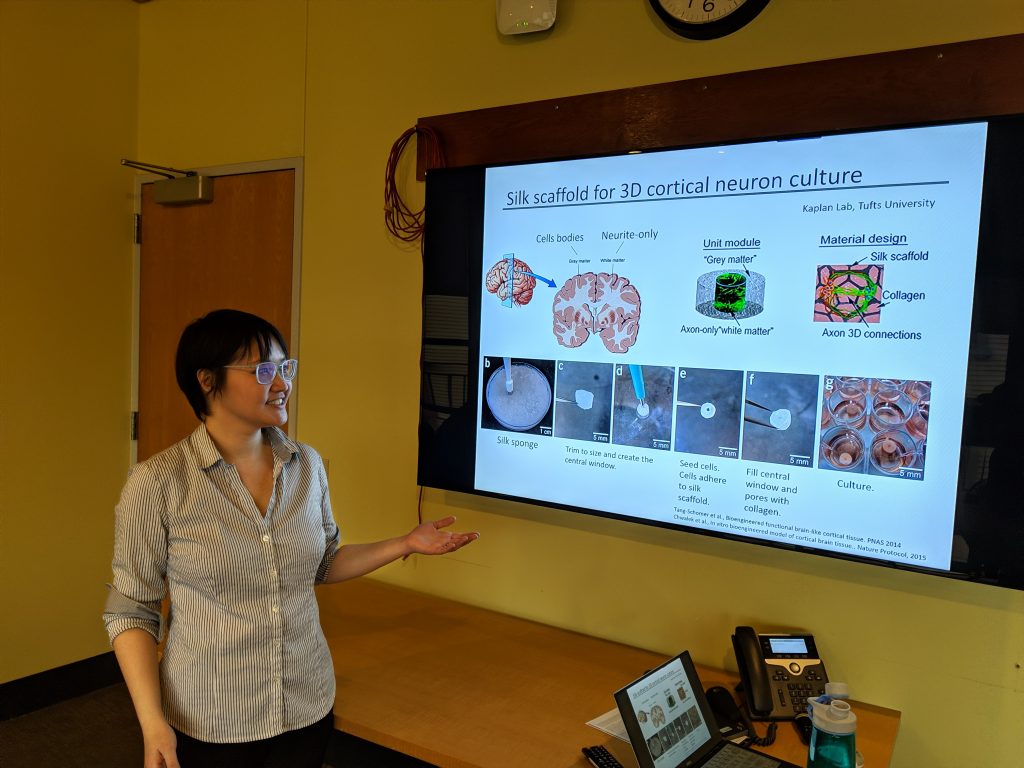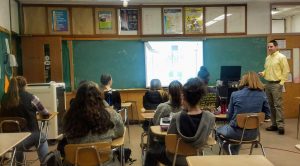INSciDE Collaborators Awarded Pilot Grant to Study Effect of Air Pollutants on Alzheimer’s Disease Progression in 3D Brain Models

INSciDE collaborators and Tufts research professors Neelakshi Hudda, PhD (Civil & Environmental Engineering) and Thomas Nieland, PhD (Biomedical Engineering, INSciDE) were awarded a 2019 Pilot Grant for Aging Research as part of the One Healthy Aging at Tufts Initiative. Their collaborative project titled, “Development of a system for determining the neurotoxicity of air pollutants in human brain tissue models of Alzheimer’s disease,” will expose human brain tissue models composed of induced pluripotent stem cell (iPSC)-derived neurons, astrocytes, and microglia to particulate matter (PM). Using both pure-phase and real-world complex PM, they will investigate the relationship between onset and progression of AD pathology and exposure to air pollutants.
INSciDE Research on Biomaterials for Drug Delivery to the Brain and Novel Models of Habituation Published in Scientific Journals
Several papers on INSciDE research were recently published in Acta Biomaterialia, Journal of Pharmaceutical Sciences, and BioEssays. These papers represent the latest advances in our development of biomaterials for drug delivery to the brain as well as in generalized models of habituation in biological systems. To read the papers, click on the links below:
- Film interface for drug testing for delivery to cells in culture and in the brain
- Min D. Tang-Schomer, David L. Kaplan, and Michael J. Whalen. Acta Biomaterialia (2019).
- Silk reservoirs for local delivery of cisplatin for neuroblastoma treatment: in vitro and in vivo evaluations
- Burcin Yavuz, Jasmine Zeki, Jordan Taylor, Kristin Harrington, Jeannine M. Coburn, Naohiko Ikegaki, David L. Kaplan, Bill Chiu. Journal of Pharmaceutical Sciences (2019).
- On the generalization of habituation: how discrete biological systems respond to repetitive stimuli: a novel model of habituation that is independent of any biological system.
- Mattia Bonzanni, Nicolas Rouleau, Michael Levin, and David L. Kaplan. BioEssays 41: 1900028 (2019).
To see a full list of INSciDE publications, click here.
Latest INSciDE Research Presented at Spring Conferences
Lab members including Dr. Thomas Nieland, Dr. Joshua Erndt-Marino, Eleana Manousiouthakis, and Nicholas Fiore presented their latest work at conferences including the annual meetings for the National Neurotrauma Society, BRAIN Initiative Investigators, and the Society for Biomaterials, as well as the Keystone Symposium on Neural Environment in Disease: Glial Responses and Neuroinflammation. They presented on 3D human brain-like tissue models to study traumatic brain injury and autism spectrum disorder, enteric nervous system models, and astrocyte immune responses in 3D tissue models.
To see a full list of INSciDE conference presentations, click here.
Guest Lectures Featuring INSciDE Research

Dr. Yu-Ting L. Dingle was invited to Brown University to give a lecture for the “In Vitro Models for Disease” class to graduate students. She discussed the challenges in traditional 2D culture and the advantages and disadvantages of varied novel 3D neural culture platforms to study brain injury, neurodevelopmental disorders, and neurodegenerative diseases.

INSciDE Deputy Director Michael Lovett, PhD, offered a guest seminar on biomedical engineering and INSciDE for students at Pentucket Regional High School (West Newbury, MA). The lecture, offered as part of a “Careers in Health Sciences” course, discussed the varied career prospects for biomedical engineers, the ongoing work of the INSciDE research team, as well as future perspectives. To request INSciDE team members for similar events, please contact us here.